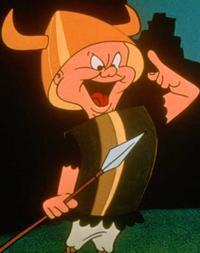Ender's Game
I used to read science fiction fairly avidly, although (trust me) I never fell (too too deeply) into the SF Nerd pool (No "Live long and prosper"s or Empirial Storm Trooper outfits for me).
Still, somehow I never quite got around to reading "Ender's Game", despite the almost cult-like love for the book (especially (but not exclusively) among young people). I suspect that on some level, the appeal to youth probably made me feel that the book was not an adult book.
Wrong. So terribly, misguidedly, blindly wrong.

"Ender's Game", while concerned with the life of a young man, examines themes of life, and destiny, and dedication and heroism and the triumph of the oppressed. It touches upon xenophobia and genius and what makes a man a man.
"Ender's Game" is a work of unquestioned brilliance.
Prior to the opening of the book, the earth had been attacked by an alien race (and had barely survived). To prevent future attacks, the combined countries of the world decide to seek and destroy the home of the aliens, eliminating the fear of future attacks. Ender Wiggins, a young man in a world set in a recognizable future world, is recruited by the government to participate in their "Battle School".
Battle School is a school located off-planet, populated by a group of super-genius children, bred specifically to act as the military planners that will lead humankind to eventual victory. Ender is both the smallest (and most resourceful) of these children, and he quickly rises to prominence within the Battle School.
Juxtaposing Ender's growth as a leader against his questions about his destiny; watching him find ways to win his battle games while still struggling to survive in the real world of jealousy and politics and youthful exuberance makes for compelling reading....and, unlike many such works, the ending is both satisfying and thoroughly thought-provoking. Ender, and "Ender's Game" will linger long after the book has been read.


<< Home